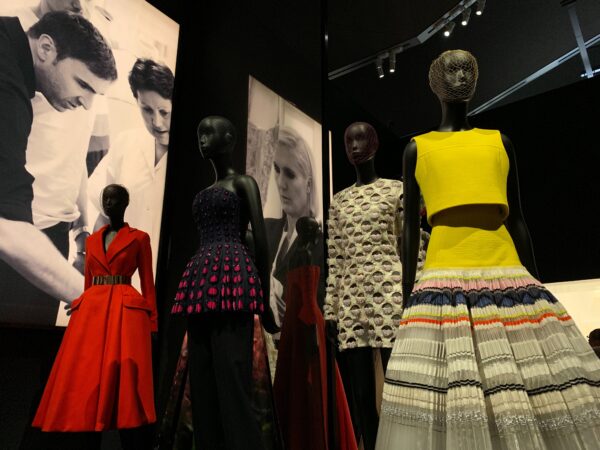Fast fashion is a term used to describe a business model of creating and selling inexpensive clothing designs which are rapidly produced in large volumes. Fast fashion has huge impact on fashion industry and become synonymous with today’s fashion industry, providing consumers with trendy clothing at low prices.
Many fast fashion brands present themselves as affordable and stylish, aimed at satisfying the customers’ desire for constant renewal of their wardrobe. Nevertheless, it is pertinent for individuals to recognize the growing ethical issues in fast fashion.
Factors such as the speed of production, sustainability, worker exploitation, and other social ills have been associated with the industry. In this article, we will uncover the ethics of cheap clothing and its impact on society.
The Origin of Fast Fashion
Fast fashion has been around since the 1960s when the manufacturing process in the fashion industry became more mechanized, leading to lower production costs. However, the 1990s saw an upsurge in fast fashion, fuelled by globalization and advances in technology.
The fashion industry encountered a shift in consumer behavior, as low prices and accessibility were prioritized over quality and ethical considerations.
The Impact of Fast Fashion on the Environment
Fast fashion has a significant environmental impact, as a result of the processes involved in its production, consumption, and disposal.
The production of fast fashion leads to the depletion of natural resources, such as water, raw materials and energy, which are crucial in producing textiles.
Fast fashion contributes to the emission of greenhouse gases and the release of toxic chemicals into the environment.
Polyester materials that are commonly used in fast fashion items take up to 200 years to decompose, emphasizing the long-term effects of fast fashion.
The Impact of Fast Fashion on Human Rights
The fast fashion industry has been associated with numerous labor abuses, from low wages to poor working conditions, and even modern-day slavery.
Most fast fashion companies outsource their production to factories in developing countries, where labor is cheap.
These factories, in most cases, do not have ethical practices or provide adequate working conditions. Workers often work long hours under hazardous conditions. It includes little or no job security, in addition to the low wages paid.
Child labor is also common in the fast fashion industry. Children as young as six years old being forced to work in factories. The International Labor Organization (ILO) records that of the 218 million children globetrotting in child labor. And, 152 million are in developing countries.
Clothing brands, to a great extent, facilitate this practice by choosing to outsource their production to developing countries. It’s where children are more susceptible to exploitation.
The Negative Impact of Fast Fashion on Consumers
Fast fashion promotes a culture of disposability, where consumers accumulate vast amounts of clothing. But dispose of the clothes frequently, due to the poor quality, outdated fashion or just a change in fashion trend.
Consumers have been conditioned to purchase more clothes than they require to keep up with the latest trends.
The low prices, convenience, and accessibility of fast fashion encourage overconsumption. It has significant negative consequences on the environment and individuals. The synthetic materials used in the fast fashion industry are linked to health issues like respiratory problems and skin irritation.
Fast fashion clothes are frequently produced and packaged in countries with lax legal standards. It raises questions on the safety of their products. It is essential for consumers to consider the safety and health impacts before purchasing cheap clothing items.
Solutions to the Ethical Issues of Fast Fashion
Several campaigns and initiatives have been launched in recent years to promote ethical practices in the fashion industry. Consumers can play their part in promoting ethical fashion practices by supporting sustainable brands that prioritize ethical practices. It can also be achieved by reducing their consumption levels.
Social media platforms and smartphone applications have made it easier for consumers to learn about sustainable and ethical fashion brands. However, significant changes can only be made when the fast fashion industry decides to prioritize sustainability and ethical practices over profits.
Large companies need to hold themselves accountable for their actions, by adopting sustainable production processes, and valuing worker safety and wellbeing above profitability.
Conclusion
The fashion industry has significantly impacted our society, both positively and negatively. Fast fashion has become an integral part of this industry, but its negative consequences must be addressed. Consumers have a significant role to play in promoting ethical fashion practices by making a conscious choice, to support sustainable brands that prioritize the environment and worker welfare.
With the adoption of sustainable practices, fast fashion could emerge as a critical player in the fashion industry, rather than an industry with its focus solely on profit-making











